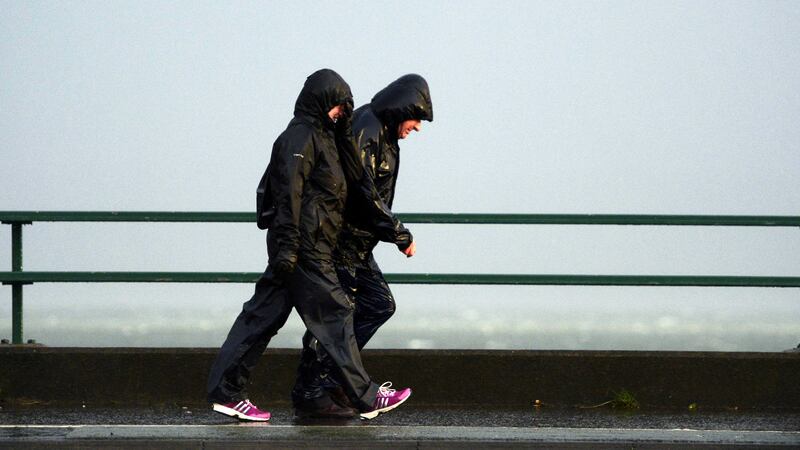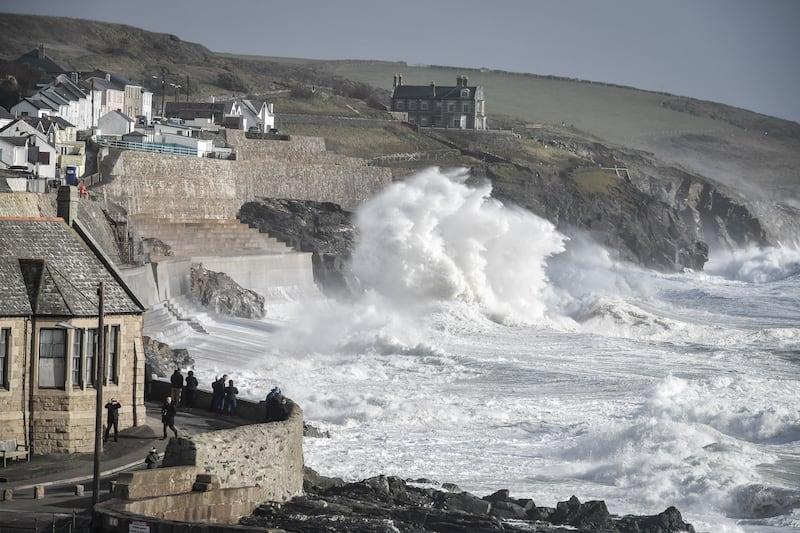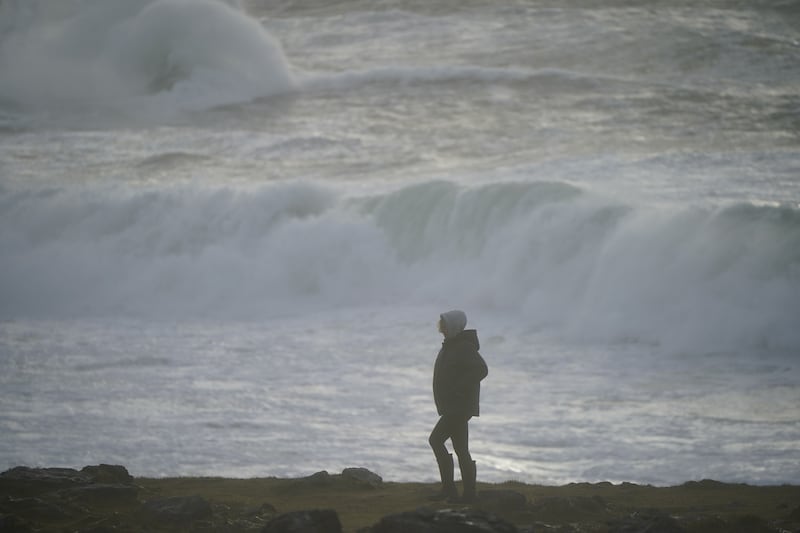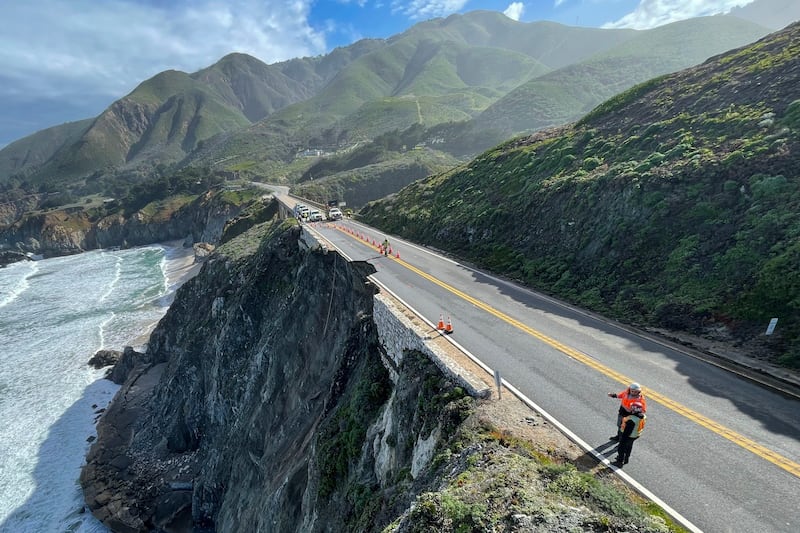GALE FORCE winds, thunder and torrential rain showers are expected across Ireland over the next few days as Storm Abigail descends.
Coastal areas in the north west are predicted to be the worst affected.
Glengormley householders are cleaning up after what has been described as a “mini tornado” hit the area this afternoon.
Met Eireann issued weather warnings this afternoon, predicting winds of up to 120km (75 miles) an hour to hit Donegal and Derry tonight.
They have also predicted showers of rain and hail across Ireland and for the evening to be cold, with the lowest temperatures predicted to range from 2 to 6 degrees celsius.
Friday will also be cold, with thundery rain and hail showers and strong westerly winds throughout the day.
Although showers are expected in northern and western counties on Friday evening, it is expected to be a mostly dry night.
Shwrs bec confined to NW&W counties, otherwise mainly dry tonight.However,outbreaks rain/drzl to develop in S&W before morn.Breezy.Min 6-10C
— Met Éireann (@MetEireann) November 11, 2015Heavy rain may cause flooding in some northwestern areas on Saturday and it is to remain cold over the weekend.
Abagail has already begun to disrupt transport as strong winds caused extensive delays and a small number of cancelled flights at Dublin airport.
Some minor disruption to flight schedule @DublinAirport due to strong winds, please check latest flight info with your airline.
— Dublin Airport (@DublinAirport) November 12, 2015Gardai are urging motorists to excerise caution during the storm, as is the Road Safety Authority (RSA).
Abigail is coming and she’s got wind.Gale force winds expected on exposed coasts. Pls do not go near waterways or coastal areas during storm
— An Garda Síochána (@GardaTraffic) November 12, 2015The RSA has asked road users to take 'extreme care' when travelling.
They advise motorists to beware of objects being blown into the road and fallen debris.
They also remind motorists to be aware of road users that are vulnerable to strong cross winds like motorcyclists and high sided vehicles.
strong winds are predicted by @MetEireann today, we remind all road users to drive carefully over the coming days https://t.co/vuWLrroitG
— RSA Ireland (@RSAIreland) November 12, 2015Abigail is the first storm to be officially named by the Met Office and Met Eireann.
The name was one of 21 chosen as the result of a public vote used to name particularly severe storms affecting Ireland and Britain.
By spring, Ireland could be on the receiving end of Storm Clodagh, Orla, Frank and Barney, among others.







